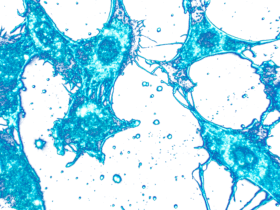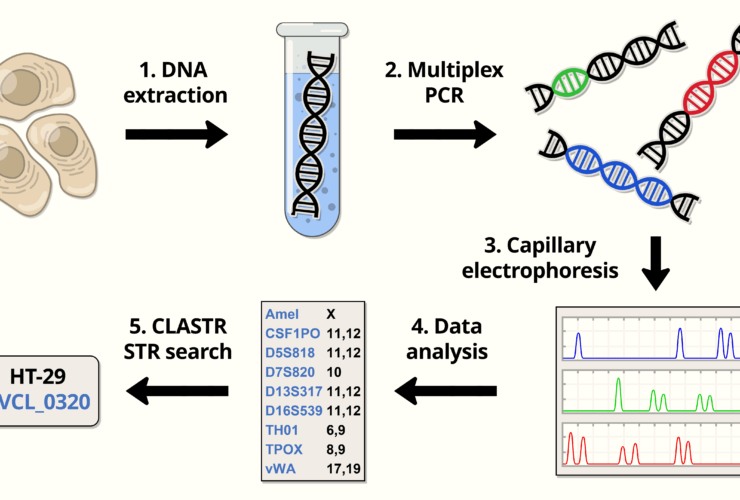This document was written to set out the essential steps for authenticating human cell lines. The Guide focuses on short tandem repeat (STR) profiling, as a widely used and accepted authentication method. The Guide includes sections on: Preparing starting material for ...
The seminar slides are designed as a short, engaging presentation about cell line authentication. Topics include why authentication is important, the impact of misidentified cell lines, and a brief description of STR profiling. At the end of the slide deck ...
The training module is designed to explore various aspects of cell line authentication. Three separate slide decks are included, courtesy of Bio-Trac and in memory of Roland Nardone. Human Cell Line Authentication Discusses why authentication is necessary, when to test, ...
The Cellosaurus is a knowledge resource on cell lines. It attempts to describe all cell lines used in biomedical research. For each cell line (currently ~120,000) the Cellosaurus provides a wealth of information. ...
AuthentiCell allows you to search for similarities between your cell line samples and an extensive number of human cell line STR profiles stored in the database. AuthentiCell is a service provided by the European Collection of Authenticated Cell Cultures (ECACC). ...
Leibniz Institute DSMZ operates a user-friendly interface to query its database of STR profiles, brought together in collaboration with cell banks ATCC, JCRB, and RIKEN as a human cell line cross-contamination initiative. ...
The Cell Line Integrated Molecular Authentication (CLIMA) database is the result of an integration effort aimed at including all certified STR profiles of human cell lines in a unique database. Its main feature is cell line identification according to the ...
As part of their continuing efforts to characterize and authenticate the cell lines in the Cell Biology collection, ATCC has developed a comprehensive database of short tandem repeat (STR) DNA profiles for all of their human cell lines. ...
The NCBI BioSample database archives STR profiles and descriptions for several thousand cell lines, as provided by cell line repositories. The database is administered by the US National Library of Medicine, National Institutes of Health. ...

























